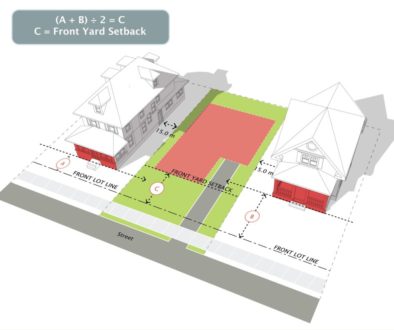How to Get Started in the Urban Planning Profession
Do you have aspirations of invoking positive change by way of development projects? Are you excited about meeting with public officials, developers, and stakeholders? Do you look around and think of how you can contribute to the development of your community? Lastly, have you dreamed about the day where you can make a recommendation on a high profile or complex project during a televised public hearing? If you said yes to most of these then it is pretty clear that you would fair well as an urban planner. But, you are probably thinking was does it take to become one? Well, no worries I will provide a pretty clear description of what it takes to get your foot in the door.
How Much Education is Necessary?
Research
First, let us ask if receiving a higher education is even necessary? To answer this question, the answer is it is subjective. You may be thinking what?! How and why? Simply you first need to determine what your end goal is. How far in this career do you want to go? You may be thinking well sheesh how am I supposed to know if I am not even in the profession yet. Well, to put it simply no matter what profession you go into, I find it wise to always do a little research on the profession. This can be done by reading articles, first hand accounts, watching videos, and even volunteering for a day in the profession so you can get firsthand experience. The last thing you want to do is enroll into college, spend tons of money and time on a degree only to realize this is not what you expected. So, the first education you need to receive is by researching is this really for you.
Is higher education required?
An entry level position in the world of planning can either be as the following:
Planning/Zoning Technician – This is an entry-level paraprofessional position. According to dictionary.com paraprofessional is a person to whom a particular aspect of a professional task is delegated but who is not licensed to practice as a fully qualified professional. Therefore,these employees devote a large amount of their time to administrative duties.
These duties include providing technical assistance to higher level staff and the general public (customers) in the administration of specific planning programs areas or ordinances. Technicians are also responsible for reviewing building/construction plans and zoning permit applications to assure compliance with requirements such as use and development standards (setbacks, density, lot coverage, height, etc.). They perform routine office tasks in designated program areas, including data entry, file management, copying and answering correspondence. Most importantly, technicians are tasked with a lot of research projects.
The technician position at a minimum, requires the completion of an associate’s degree in urban planning, architecture, construction management, social sciences and/or related field. Two years of experience in plans review, zoning administration, building code issuance of surveying is also required. A bachelor’s degree is preferred and may substitute for two years of experience.
Junior Planner/Assistant Planner/Planning I – This is an entry-level professional position. It is distinguished from the Planning Technician position because it involves professional-level duties and judgment, and fewer routine administrative tasks. As a result, it can be assumed a little more education will be required.
This position requires a bachelor’s degree in urban planning, architecture, public policy, and/or related area of education. Additionally one year of planning experience. However, in lieu of experience a master’s degree can be a substitute for experience.
They develop planning studies and reports in support of new and updated plans, programs and regulations. These reports can be environmental assessments/ initial studies if you are an environmental planner or they can be in the form of a staff report. Responsible with reviewing or assisting in the review of moderately difficult development proposals and site plans for conformance with codes, plans, and regulations. One of the defining differences between a technician and this position is that a planner I/junior planner/assistant planner prepares and presents detailed reports on development proposals to government bodies. They are other tasks such as acting as a liaison between community groups, governmental bodies, developers and elected officials, but I will be here all day providing the various tasks.
I think you now understand the subtle and not so subtle differences, and that technicians have a bit more administrative tasks which will prepare you for the next step whereas as entry level planner is now tasked with getting into the meat of the profession. Nonetheless, in order to begin your paraprofession or professional planning career you will need an associates or bachelors degree.
How do you obtain Entry Level Experience to Start an Entry Level Position?
You may be questioning how are you supposed to get experience for an entry level position? It seems absurd right? Well, it really isn’t and I agree that some experience is needed beforehand. This beforehand experience comes through an internship or by simply volunteering. I can tell you right off the bat that I did a two year internship and guess what it was unpaid! Yes, they did not provide me with a penny. You may be thinking that I was crazy and yes I was.
But, there was a specific reason why I took on a two year internship without getting money. The simple answer is I was a sophomore transitioning to a junior in college when the great recession first hit in 2007 and I graduated during the recession in 2009. Therefore, I had no option, but to bite the bullet and hope that future employers would see my dedication to keep going to my internship even after I graduated (even though I was broke) as heroic and something they would deem as valuable and not stupidity.
I will let you all in on a secret. I at one point found a job after graduation as a technical writer for private water conservation company, and of course quit my internship. But, the recession was not like oh you thought I was done wrecking havoc? It hit my water conservation job as well! This led to me being furloughed on Monday’s. I could have easily said yaaay I am 22, I will party this day away or just sleep, but what did I do instead? I went back to my internship and said hey I am furloughed on Monday’s can I start coming back in just on Monday? I was working my regular job, doing an internship on Monday, and started going back to school at night to obtain a certificate in GIS. And you know what every time I do an interview and tell that story of me persevering through it, interview panels eat it up. I pretty much always land each job I apply for and I believe my internship story has a lot to do with it.
The internship level in the planning profession often represents the first practical stage for a prospective planner. Successful internships yield valuable insight and practical knowledge for students as they refine their educational and career paths. Some of the more valuable knowledge you will obtain is office etiquette and how to deal with multiple personalities in the office.
Many internships are unpaid like mine was way back then, but they offer a wealth of opportunities for students, such as college credit or the possibility for permanent employment with the organization upon graduation. Please note that accepting a paid internships versus unpaid will depend on different variables such as the state of the economy, what year in college you are in, the geographical location, the culture of the workplace, etc. But, please remember interns usually are more marketable as they search for permanent employment because of their additional experience in the planning profession.
So, yes, get an internship and get one as early as possible. This will allow you not only to get prepared for an entry-level planning possible, but it will tell you early on if this is the career path for you.
Conclusion
To wrap this up, if you are interested in becoming a planner please start your research which are doing if you are reading this blog (good job). Get hands on experience through an internship or by volunteering. With regards to education an associates degree or bachelor’s degree will suffice in the early years. I for one only have a bachelor’s degree and have been thriving but I believe that is because I consider myself to be a generalist planner and have no problem molding and evolving as the profession evolves (we will get into that later).
Nonetheless, if you found this information to be valuable please let me know by checking out an additional blog. If you have any comments, questions, and/or concerns please do not hesitate to contact the Friendly Neighborhood Planner.



